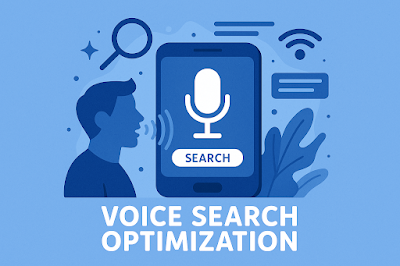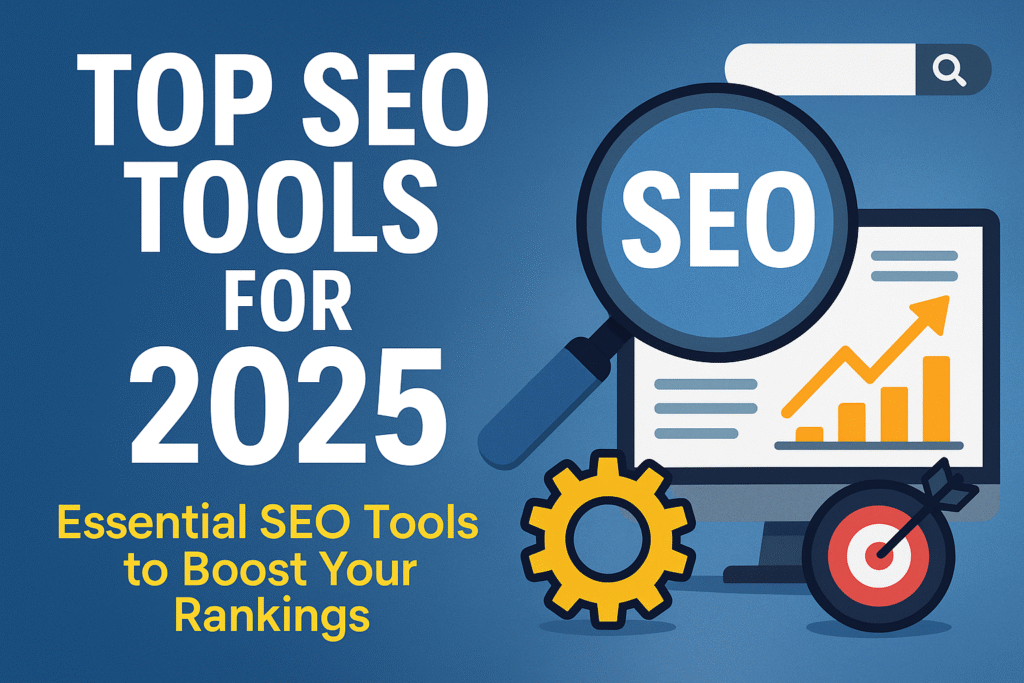What is AI SEO? How Artificial Intelligence is Changing Search Optimization
In the ever-evolving world of digital marketing, staying ahead of the curve is essential, especially when it comes to Search Engine Optimization (SEO). Over the past few years, artificial intelligence (AI) has dramatically changed the SEO landscape, enhancing how businesses optimize their websites to rank higher in search engine results. This article will explore what AI SEO is and how artificial intelligence is transforming search optimization.
What is AI SEO?
AI SEO refers to the integration of artificial intelligence technologies into SEO practices. AI involves using advanced algorithms and machine learning models to automate, optimize, and improve various aspects of SEO. By analyzing large datasets, AI-powered tools can provide insights into keyword performance, content quality, user behavior, and much more. The goal of AI SEO is to make the process of ranking higher on search engines more efficient, accurate, and adaptive to the changing trends in digital marketing.
Unlike traditional SEO methods, which heavily rely on manual work and human analysis, AI SEO leverages machine learning to constantly learn from data, adapt, and improve SEO strategies over time. With AI, SEO specialists can make data-driven decisions in real-time, saving time, increasing accuracy, and boosting overall website performance.
How Artificial Intelligence is Changing Search Optimization
1. Revolutionizing Keyword Research
AI has greatly improved keyword research by using data-driven insights to identify high-performing and low-competition keywords. With tools like Google’s RankBrain and AI-powered platforms like Clearscope and MarketMuse, marketers can analyze not only search volume but also the intent behind user queries. This allows businesses to optimize for long-tail keywords and related search terms that humans might overlook.
AI’s predictive capabilities allow SEO experts to forecast which keywords will generate the most traffic, making it easier to focus on the best opportunities to rank for.
2. Content Creation and Optimization
Content is king in the world of SEO, but creating high-quality content consistently can be a daunting task. AI-powered content generators, like OpenAI’s GPT-4, are making it easier for marketers to produce relevant and valuable content for their target audience. By analyzing top-ranking content in a specific niche, AI can generate content that matches the language, tone, and structure of what search engines prioritize.
Furthermore, AI can also optimize existing content by suggesting relevant updates, identifying keyword gaps, and ensuring content aligns with current trends. Tools like Surfer SEO analyze the competitive landscape, helping content creators improve their pages for search engines and users alike.
3. Improved User Experience (UX) Optimization
User experience (UX) is a critical ranking factor in SEO. Google’s algorithms have been increasingly focused on delivering content that satisfies users, considering metrics such as bounce rate, time spent on the page, and mobile optimization. AI is transforming UX by analyzing user behavior to help businesses identify bottlenecks in the user journey.
AI-driven tools can predict user behavior, improve website load times, suggest UI changes, and enhance the mobile experience. By analyzing data such as click patterns, page views, and even heatmaps, AI can provide actionable insights that enhance the overall user experience and ultimately boost rankings.
4. Enhanced Personalization of Search Results
One of the most significant impacts of AI on search optimization is the shift toward personalized search results. AI algorithms, including Google’s RankBrain, personalize search results based on individual user preferences, location, browsing history, and device.
For example, AI can prioritize content that aligns with a user’s past searches or interests. Websites that utilize AI-driven content and personalization can tailor their SEO strategies to ensure they are providing a unique and relevant experience for their audience. This increases engagement and keeps users coming back, which is beneficial for long-term SEO success.
5. SEO Automation and Time-Saving Insights
AI has the power to automate many repetitive SEO tasks, making the process much more efficient. Tasks such as keyword tracking, link building, and technical SEO can be optimized using AI-powered tools, saving businesses time and effort. AI tools can crawl websites, identify broken links, monitor keyword performance, and even generate SEO reports.
This automation allows SEO professionals to focus on strategy and creative tasks, while AI handles the heavy lifting. AI tools like SEMrush and Ahrefs can help marketers identify areas for improvement and automate keyword tracking, providing real-time insights into a website’s SEO performance.
6. Predictive Analysis for SEO Trends
AI doesn’t just help businesses understand current SEO trends but also predict future changes. With the ability to analyze large datasets, AI can forecast which SEO strategies are most likely to succeed, based on historical data, competition analysis, and algorithm changes. This predictive analysis helps SEO professionals make smarter decisions and stay ahead of trends before they become mainstream.
For example, AI can identify emerging topics or search trends and suggest new areas to focus on in content creation. This proactive approach ensures businesses maintain their competitive edge in a crowded digital marketplace.
7. Voice Search Optimization
Voice search is becoming more prevalent with the rise of virtual assistants like Siri, Alexa, and Google Assistant. AI plays a crucial role in optimizing for voice search by understanding the natural language used in voice queries.
AI-powered tools can analyze the structure and phrasing of voice searches to help businesses optimize their content for conversational keywords. This includes focusing on question-based phrases like “How to,” “What is,” or “Best ways to.” By optimizing content for voice search, businesses can attract more traffic from voice-enabled devices, further enhancing their SEO strategy.
8. AI in Link Building
Link building has long been an important SEO practice. AI helps improve this process by identifying high-quality link opportunities, monitoring competitors’ backlink profiles, and suggesting effective strategies to gain valuable links. AI can also determine the relevance and authority of a website, ensuring that the links you build contribute to your site’s credibility and improve its ranking potential.
AI-powered tools like Linkody and Majestic SEO help marketers track their backlinks and analyze their link-building efforts to ensure they are in line with SEO best practices.
9. Content Gap Analysis
AI can assist in identifying content gaps on your website, ensuring you create content that meets the needs of your target audience. By comparing your content with top-ranking competitors, AI tools can highlight topics or keywords you haven’t covered. These insights help businesses generate high-quality content that fills in the gaps and drives organic traffic.
Tools like MarketMuse and Frase leverage AI to analyze your content and suggest areas where additional content could improve rankings and user engagement.
Conclusion
Artificial intelligence is fundamentally transforming SEO, making it smarter, more efficient, and highly data-driven. From advanced keyword research to AI-powered content creation, AI SEO helps businesses optimize their websites faster and more effectively than ever before. With the ability to predict trends, automate tasks, and enhance user experience, AI is poised to remain a central part of digital marketing strategies in the years to come.
If you haven’t yet integrated AI into your SEO practices, now is the time to start. By leveraging AI-powered tools and insights, you can not only improve your search engine rankings but also deliver a more personalized, user-friendly experience that resonates with your audience.
Keywords: AI SEO, Artificial Intelligence in SEO, search optimization, AI tools, keyword research, content optimization, user experience, voice search optimization, predictive analysis, SEO automation, link building, content gap analysis.
Tags: #AISEO #ArtificialIntelligence #SearchOptimization #SEOTrends #AIDrivenSEO #DigitalMarketing #MachineLearning #AIGrowth #SEOAutomation #ContentOptimization #SEOtips #AIinMarketing #SEOstrategies #FutureOfSEO #SEOArtificialIntelligence #VoiceSearchOptimization #AIContentCreation #DigitalMarketingTrends #SEOforBusiness #MachineLearningSEO








.png)



